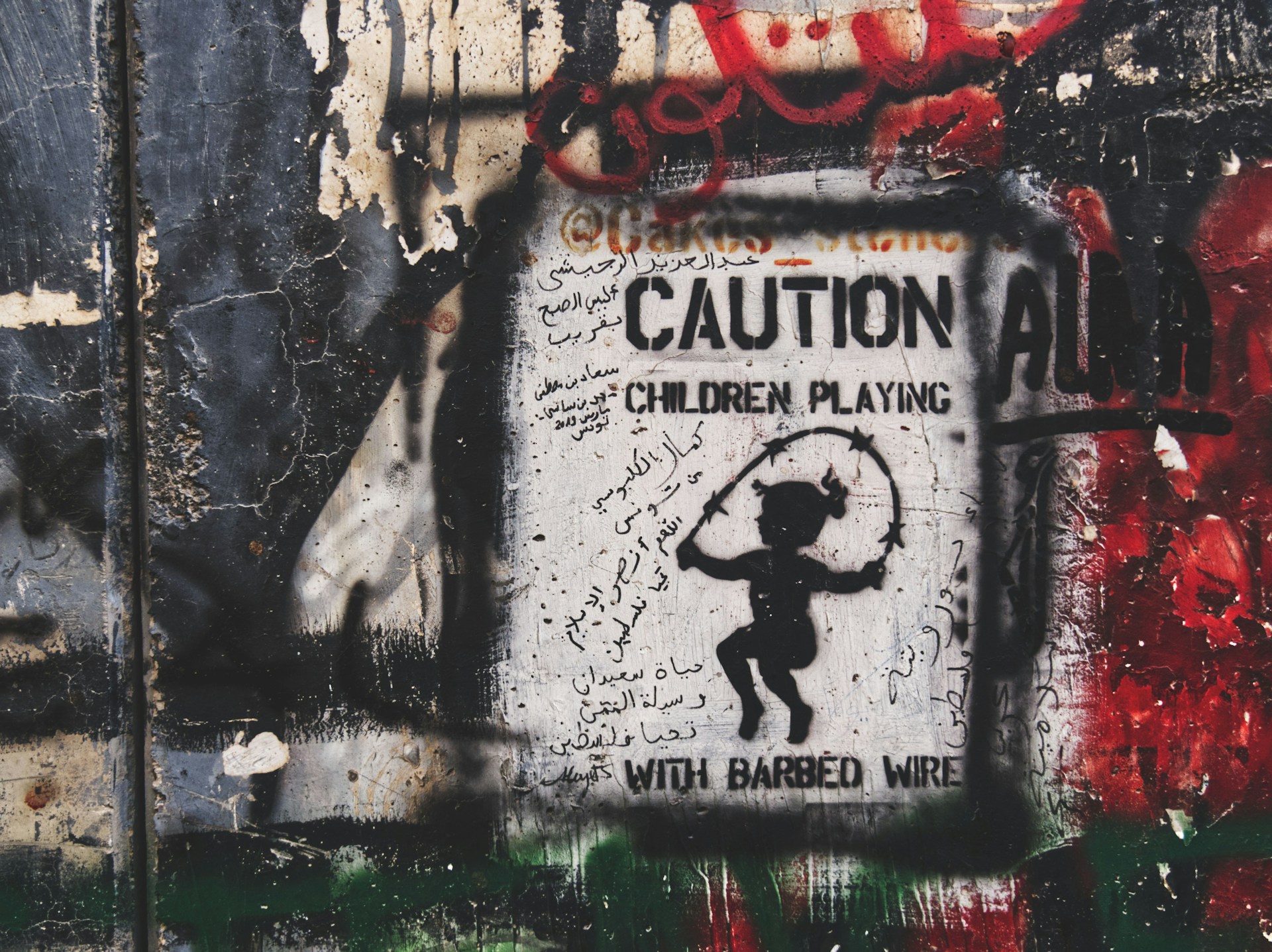Pray for us to see daylight and that we can stay safe
Wafa Abu Hasheish Tweet
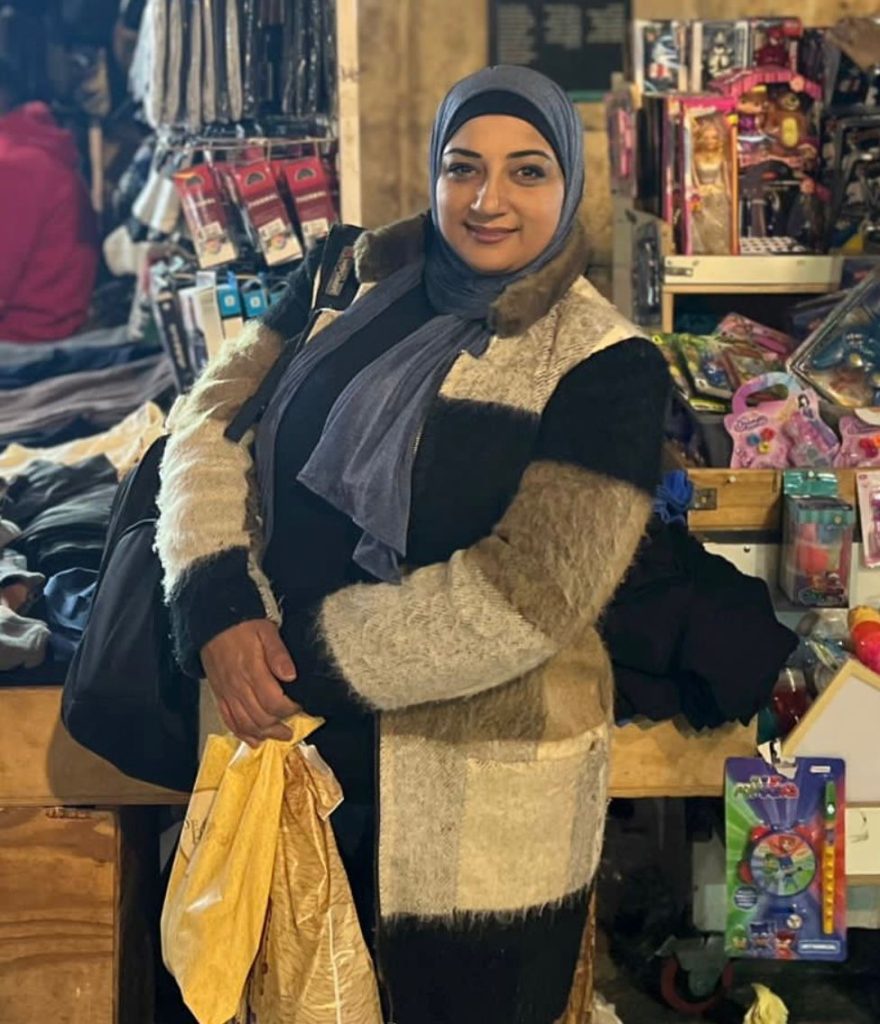
Wafa Abu Hasheish is a health worker at the Palestinian Family Planning and Protection Association (PFPPA), an IPPF Member Association.
She lives in Gaza with her husband and her three children.
We have been in contact with Wafa since the start of the war via the executive director of PFPPA, Ammal Awadallah, who is based in Jerusalem. Wafa has been providing sexual and reproductive health care to women and girls from the various places she has been forced to find shelter in the northern and southern parts of the Strip.
This is the unfolding humanitarian catastrophe in Gaza, through Wafa’s eyes.
#NotATarget #CeasefireNow
War Returns to the Gaza Strip
Following a surprise Hamas attack, Israel declares war on the Gaza Strip on 7 October. An estimated 2.3 million Gazans are trapped in the besieged strip, with nowhere to go. Wafa and her family are sheltering at their home in the Tel Al-Hawa neighborhood in northern Gaza, amid constant airstrikes and bombardment.
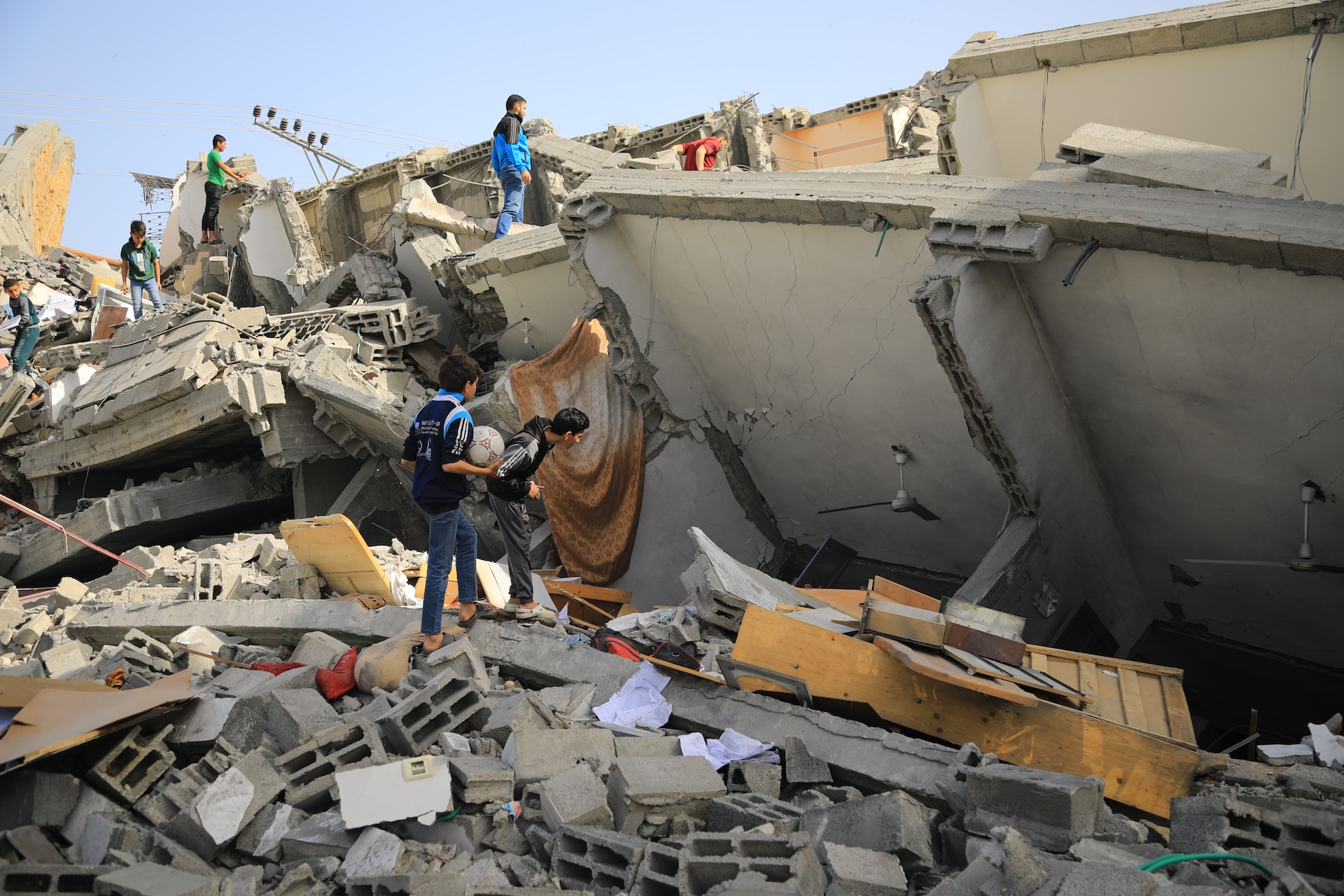
“The neighborhood has five sheltering schools and is overcrowded with displaced people. Each classroom is sheltering six or seven families, more than half of them are women and girls, and they are in dire need of sexual and reproductive health services.”
Pray for us to see daylight and that we can stay safe
Wafa Abu Hasheish Tweet
Wafa's workplace is destroyed
PFPPA’s only health center in Gaza, where Wafa used to work, was destroyed after an Israeli airstrike hit an adjacent building on 8 October. The destruction of this center has left an already extremely vulnerable and underserved population with even fewer options to receive lifesaving sexual and reproductive healthcare.
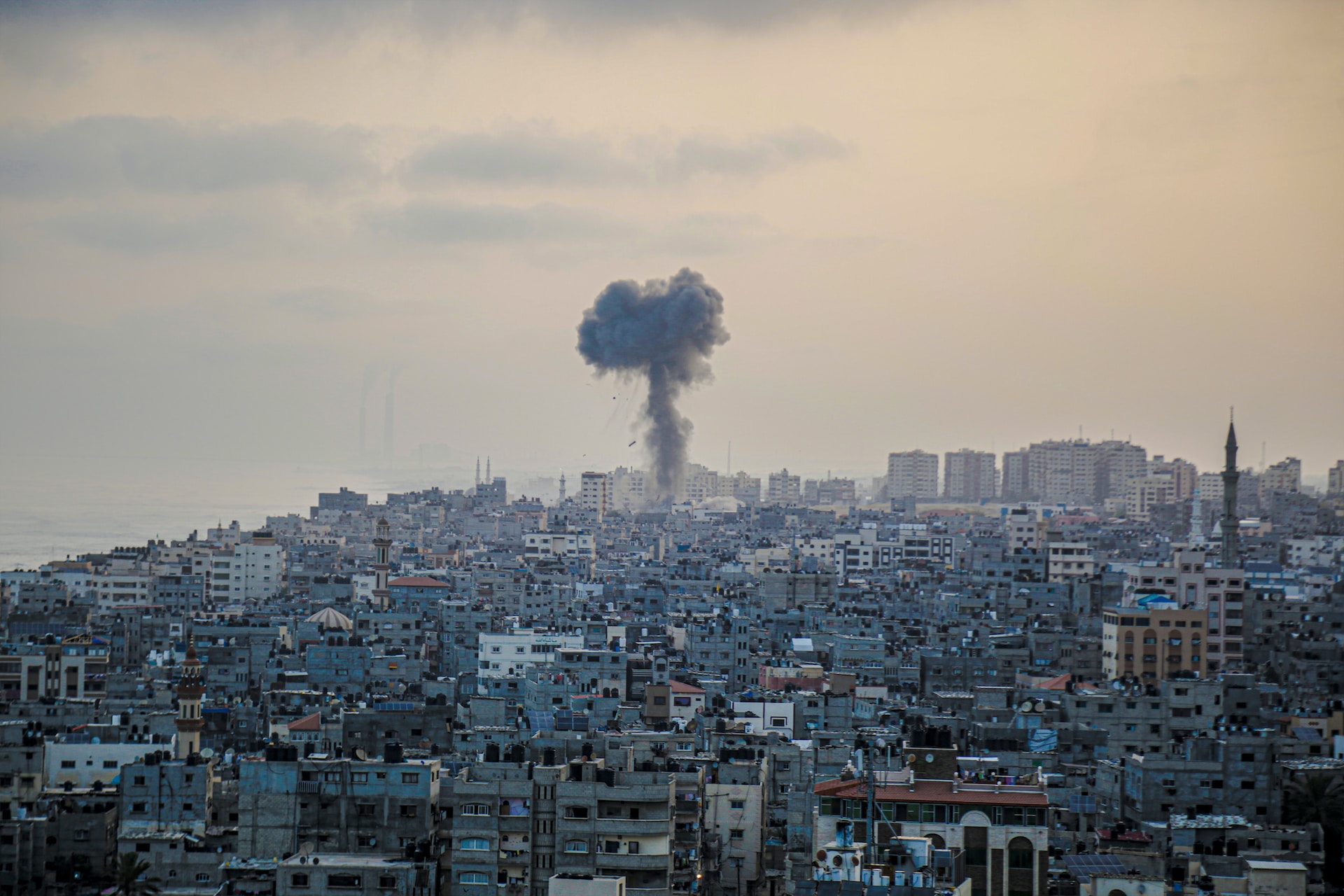
“As a mother, I am in constant fear of how to protect my children. We do not know how to sleep. I try to tell the children how to react if they or someone around them is wounded, and how to keep safe.”
Wafa’s home is destroyed in an Israeli airstrike. She and her family are forced to pack their few remaining belongings and find shelter in the extremely overcrowded Al Quds hospital, which has also been the target of Israeli attacks.
No safe place: Wafa's house is gone
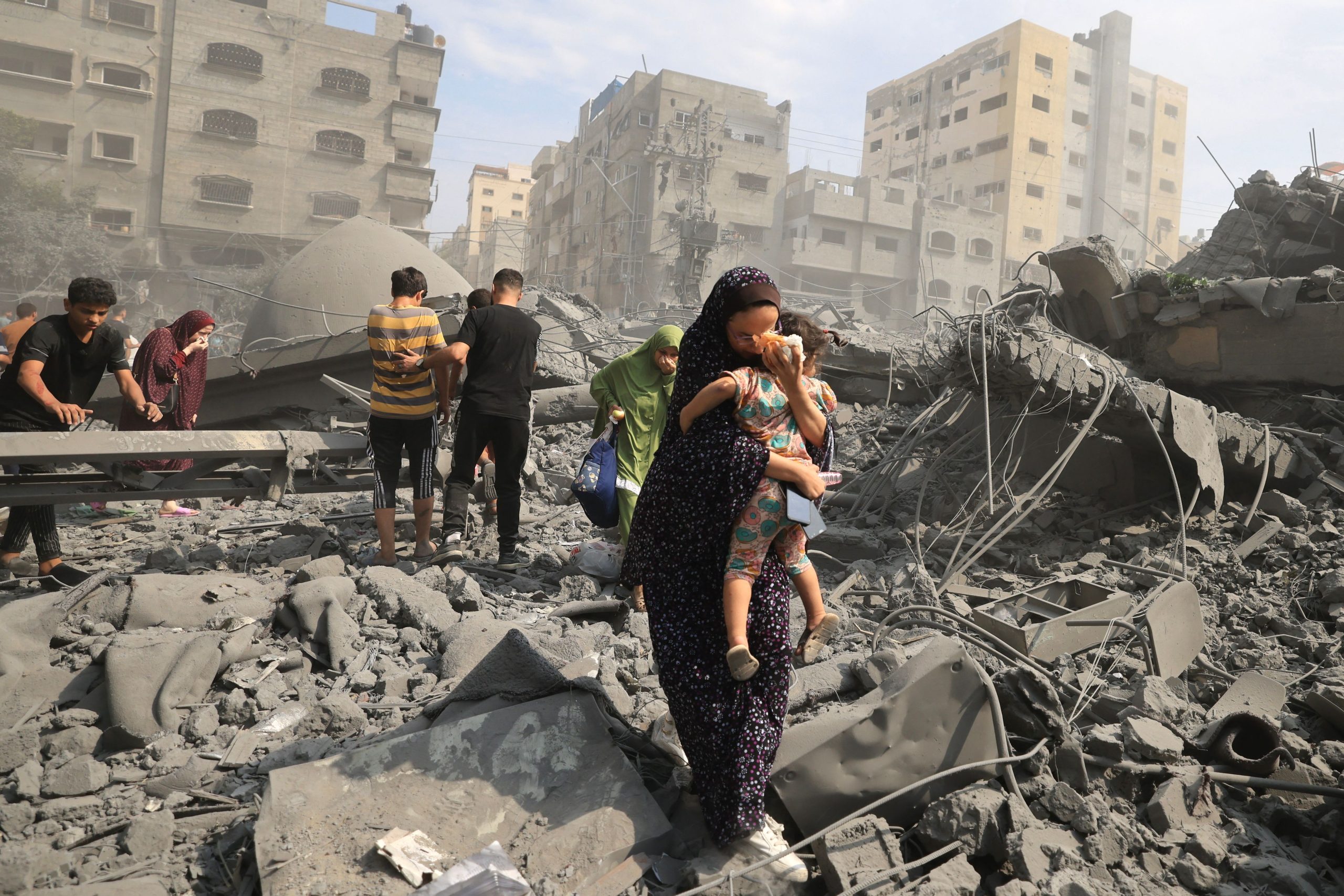
“There are so many health problems in the shelters. There is such an immense lack of health services for women and pregnant women. Breastfeeding women are not lactating enough to feed their infants, and are not able to get any baby formula. Women and girls are no longer able to find any menstrual pads, not even in the UNRWA centers.”
Gaza goes dark The first communications blackout
In the first of several communications blackouts to come, we lose all contact with Wafa on 29 October. These are some of the last messages between Ammal and Wafa before Israel severed internet and telephone services, further compounding the misery in the occupied Gaza Strip.
A dire situation for pregnant women in Gaza
Shelter conditions in Gaza for the estimated 2 million internally displaced people have become dire, with women and girls reporting a severe lack of menstrual hygiene products, cases of sexually transmitted diseases and urinary tract infections with little to no medical treatment available in the severely overcrowded shelters.
Contraception is in very short supply, and Wafa says women are sharing contraceptive pills. Women with intrauterine contraceptive devices (IUDs) are experiencing bleeding and infections due to the unhygienic conditions in the camps. There are currently no options for IUD removal in Gaza, posing long term risks to women’s reproductive health, including severe bleeding.
On a personal level, being the service provider and being present in the shelter has caused me several psychological problems, stress, and fear.

I do not know how much more the Gazans can take







